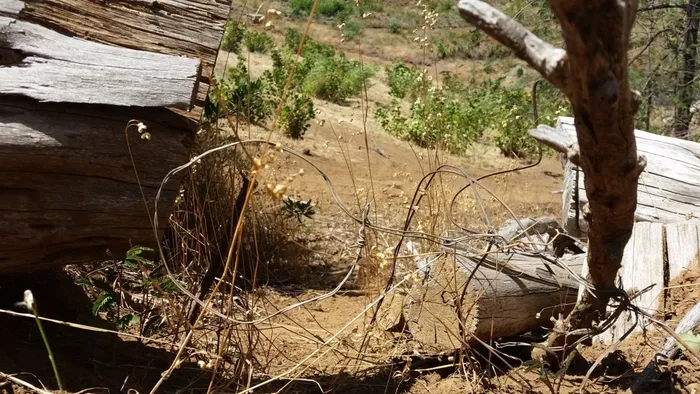Strong measures in place to curb the snare trap increase in the Western Cape

A wire snare trap made to capture the animals by the neck. Picture: SUPPLIED
Animal and wildlife organisations have raised the alarm on the increased illegal hunting methods in the Western Cape which continue to increase over the years.
In a joint statement last week, the Cape Leopard Trust, Cape Nature, Koeberg biosphere, WildLife Forensic Academy, SPCA and International Fund for Animal Welfare (IFAW) said the illegal practice of setting snares to hunt animals is a serious and widespread problem in the Western Cape.
Jeannie Hayward, the communications and media manager at Cape Leopard trust said over the past number of years there has been a definite increase in the incidence of snares.
“Protected areas adjacent to some farming and densely populated areas are hit particularly hard.
“It is extremely difficult to catch people who are snaring red handed, and even more difficult to link them to snare hunting and to present adequate evidence in court for a successful prosecution. In terms of interventions, regular snare patrols to remove set snares, as well as outreach and education initiatives have been conducted,” she said.
Wildlife department supervisor at SPCA, Jon Friedman said the snare traps are most commonly seen and found on the urban edge, usually on the wire or string noose.
“Poachers will set their snares wherever wild species occur. On the urban edge, this can be alongside areas frequented by any type of wildlife (from game birds to small and medium-sized mammals). Snares kill indiscriminately, trapping whatever happens across their path so it is rare that a poacher targets any one particular species, instead preferring to adopt a catch-and-see attitude.
“Game birds, such as guinea fowl, may be used for the pot if caught, whereas small mammals, such as mongoose, porcupine, genet cats or caracal, are sold to multi traders for the traditional medicine trade where their parts (bones, paws, reproductive organs) are in demand. We have seen a pleasing decrease in snare activities in areas that were previously heavily snared, thanks to a concerted awareness campaign, increased snare patrols and ongoing media attention.
“Poachers are however also moving their hunting / trapping grounds to new areas, where there is less focus by land-owners on illegal snaring, so our challenge is to find these areas and de-snare them as quickly as possible,” he said.
Friedman further said: “We are firm believers that a coordinated response will ultimately reduce or have the power to ultimately end illegal snaring.
“The Snare Free Initiative is just the kind of response we have been asking for, for years, to be able to proactively address, and respond to, incidents of illegal wildlife hunting and poaching within the province, whilst at the same time empowering the public to be a part of the solution.
“The initiative gives everyone with a telephone the means to report snaring as and when they see it, to alert the correct authorities to the presence of illegal snaring wherever it occurs and to ensure that ensnared animals are able to receive immediate rescue should they be found alive in a snare.”
On August 1 a response plan was officially launched as a response to the prevalent snare culture, as part of the Snare Free’ initiative.
The launch was held at the Old Mutual Conference Centre at Kirstenbosch Botanical Gardens and attended by policy makers from provincial government and district municipalities, stakeholders from several environmental organisations, nature reserves and conservancies, as well as various media, and project supporters.
Helen Turnbull, Cape Leopard Trust CEO said Snare Free is merely a first step in a coordinated effort to investigate and respond to the increasing snaring threat, and a lot of work still lies ahead as the plan evolves.
“Given the number of snares uncovered in targeted areas, we are certain this is just the tip of the iceberg.
“This will be a time of learning for the partners, but it is also an exciting opportunity for us to step up as a collective and take positive action,” she said.
Locals who discover a live wild animal caught in a snare in the Western Cape, are urged to call the Snare Free hotline for assistance on 076 127 8485.
Related Topics: